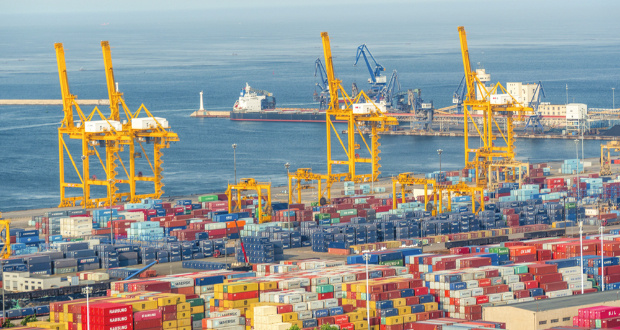The International Monetary Fund (IMF) on Wednesday announced an upward revision of its forecast for China's GDP growth in 2024 and 2025, citing strong GDP data in the first quarter and policy measures, further adding to a growing number of optimistic signs that the Chinese economy remains on a solid recovery track.
The move by the multilateral lender underscored rising global confidence in and expectations for a continued rebound in the world's second-largest economy, in stark contrast to certain Western officials and media outlets' attempts to paint China's economy as "collapsing" or "peaking," Chinese economists said.
While downward risks and challenges still lie ahead, including surging protectionism in some advanced economies, particularly the US, China has sufficient policy tools to cope with them and its economy will remain resilient, and will continue to transition toward high-quality development, thanks to the country's robust macro policies and massive efforts to support innovation, economists noted.
Higher expectations
"China's economic growth is projected to remain resilient at 5 percent in 2024 and slow to 4.5 percent in 2025. These reflect upward revisions of 0.4 percentage points for both years compared to the April [World Economic Outlook] projections," Gita Gopinath, the IMF's first deputy managing director, said in a press release on Wednesday.
The press release said an IMF team visited China from May 16 to 28 for the 2024 Article IV Consultation, during which the team held constructive discussions with senior officials from the Chinese government agencies, including the People's Bank of China, the central bank.
The IMF's upward revision of its forecast for China's GDP growth in 2024 is significant, as the projected growth rate of 5 percent is in line with China's official growth target of around 5 percent for the year. The upgraded projection is also closer to expectations among Chinese economists.
"The IMF had previously underestimated China's growth potential," Cao Heping, an economist at Peking University, told the Global Times on Wednesday, noting that many Chinese economists have forecast a GDP growth rate of more than 5 percent for 2024. "Overall, judging from various macro indicators, China's economic growth remains stable."
In the decision to upgrade China's GDP growth forecasts, the IMF team also pointed to China's strong economic data in the first quarter of 2024 as well as China's recent policy measures.
In the first quarter, China's GDP expanded by an impressive 5.3 percent, well above market expectations as the world's second-largest economy got off to a robust start. More indicators have also pointed to a solid growth in the second quarter. For example, China's imports and exports roared back to growth in April after a significant drop in the previous month, with exports growing 1.5 percent, reversing a 7.5-percent drop in March.
Cao said second-quarter GDP growth rate could surpass that of the first quarter, and that growth will remain stable for the third and fourth quarters. "In my view, China's GDP growth rate could reach between 5.3 percent and 5.5 percent this year," he said, drawing confidence from China's solid fundamentals as well as effective policy measures to tackle various risks and challenges.
In the press release, the IMF team also noted that "risks are tilted to the downside, including from greater- or longer-than-expected property sector adjustment and increasing fragmentation pressures."
Tackling risks
Chinese economists underscored various policy measures taken by Chinese policymakers to tackle these risks and stressed that China still has plenty of policy tools at its disposal to cope with downward pressure.
China has recently announced a sweeping package of policy measures to stabilize the real estate market, including cutting down payment ration of home purchases and lowering mortgage rates to boost sales. Many major Chinese cities, including Shanghai, have also moved swiftly with their own policy measures to boost the housing market.
Moreover, China has also issued massive 1-trillion-yuan ultra-long special treasury bonds, and has taken a series of moves to prevent and defuse risks related to the financial sector and local government debts.
"Some in the West had criticized China's policies as being insufficient, as effects of the policies were impacted by the COVID-19 pandemic. However, the impact of the pandemic on China has ended, the short-term shock has faded, and China's polices have proven very effective during normal circumstances," said Hu Qimu, a deputy secretary-general of the Digital-Real Economies Integration Forum 50.
Hu told the Global Times that China has not only taken effective policy measures to address short-term challenges, but also to boost high-quality development with a focus on supporting innovation.
China's pursuit of high-quality development was also highlighted by the IMF team.
"I think it is important that focus is not on growth per se, but on high-quality growth, which is what the Chinese authorities are appropriately focused on. And they've announced policies to help address the imbalances in the economy, including the property sector," Gopinath said at a press briefing in Beijing on Wednesday when responding to a question from the Global Times.
Read Full Article




